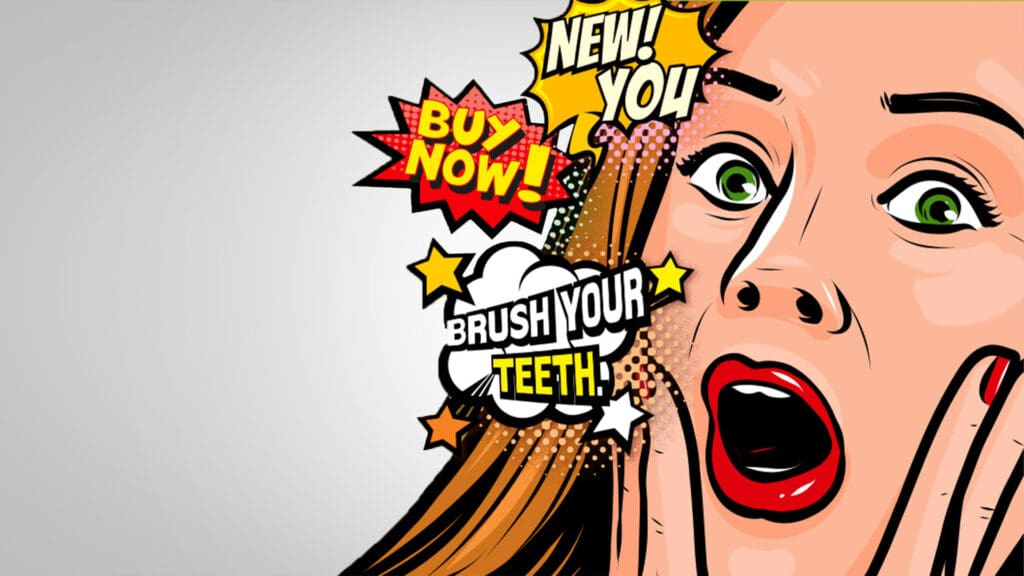
The Critical Importance of Brand Authenticity
In Santa Clara County v. Southern Pacific Railroad (1886), the Supreme Court held that the Fourteenth Amendment applied to corporations, legally establishing what is referred to as corporate personhood.
While this decision was based strictly on legal reasons, nowhere does the personhood of a corporation ring truer than in its brand. In previous articles like Your Brand is Naked and Advertising to the Real Self vs. the Ideal Self, we take deep dives into brand authenticity. We’ve also cited countless statistics about how today’s consumers, millennials and especially Gen Z, value authenticity above everything in articles like Marketing Financial Services to Gen Z and Gen Z and the Case for Out-of-Home Media.
However, for this shortened Thanksgiving week edition of Plain Talk, we will take a lighter approach. We’ll look at three famous quotes about the importance of personal authenticity and apply them to brand authenticity.
- Be Honest: “Being real means allowing yourself to be flawed, silly and imperfect.”
- Stick to Your Brand’s Values: “To be yourself in a world that is constantly trying to make you something else is the greatest accomplishment.”
- Build Relationships With Your Customers: “Real isn’t how you are made…It’s a thing that happens to you. When a child loves you for a long, long time, not just to play with, but really loves you, then you become Real.”
Be Honest
Being real means allowing yourself to be flawed, silly, and imperfect.
Tara Brach, Radical Acceptance
We’ve probably all been in a conversation with a partner, family member, or friend where we’ve had to admit a bone-headed mistake. We’ve had to be honest with ourselves and them about something we did, said, or thought. Sometimes, in recounting the process, it’s okay to laugh at yourself, too, as long as you’re doing so sincerely with the intent to improve or change.
Domino’s Pizza: Cardboard pizza
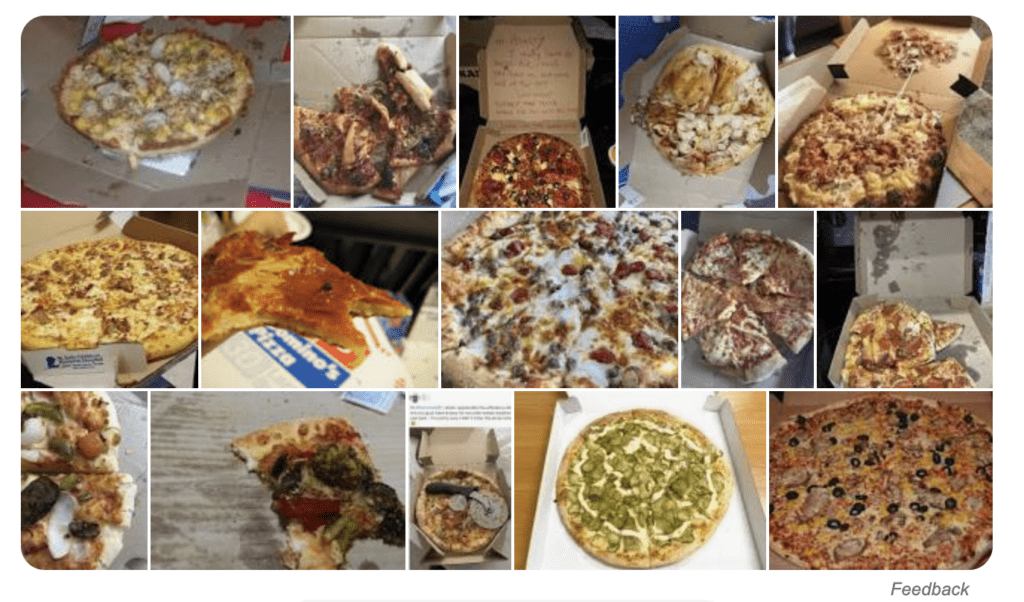
Domino’s Pizza did just this in 2010. They realized revamping their menu and ingredients wasn’t enough when surveys found them tied with Chuck E. Cheese for America’s worst pizza. Their research led them to realize they had put all their emphasis on getting the pizza to the customer fast. In the process, they had neglected to deliver a pizza that anyone would want to eat. Even their loyal customers were critical. They encouraged customers to upload pictures of their delivered pizzas and comments via their tracker app. They then broadcast them with only the obscenities bleeped in Times Square. “Worst Pizza Ever!” “Microwave pizza is far superior.” “Cardboard!”
Over the next year, they ran campaigns:
- Where they interviewed employees about how bad the old pizzas were,
- Of focus groups where the walls were pulled back, and customers could see real employees hand-making the “new” pizzas,
- And one where they even stalked past customers to get them to try their new pizzas and get new testimonials!
The results were astronomical. According to Inc. Magazine, same-store sales growth increased 10.4 percent between 2009 and 2010. Further, if you had invested $1,000 in Domino’s 2004 IPO, your stock would have been worth more at the end of 2020 than if you had invested $1,000 in Google’s 2004 IPO.
Cadbury Picnic: Looks like a Baby Ruth—maybe?
In Australia, Cadbury makes a candy bar called Picnic. Unfortunately, it shares Baby Ruth’s resemblance to excrement, as seen in the famous scene from the movie Caddyshack.
In 2001, Picnic recognized this visual flaw and adopted the tagline, “Deliciously Ugly.” They further used the headline, “The Reason Wrappers Were Invented.”
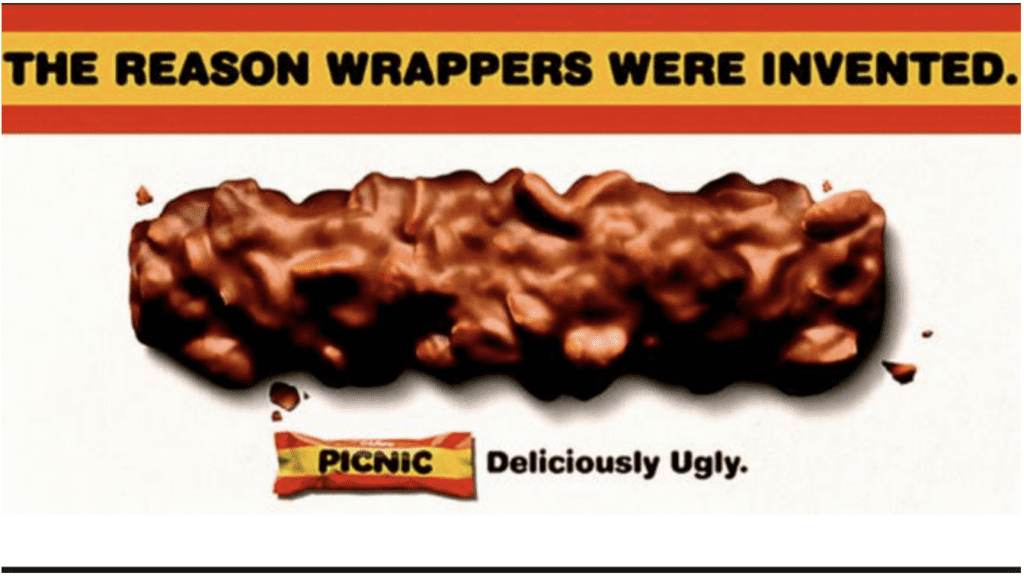
The campaign included headlines like “It Has a Good Personality.” It remained relatively unchanged for eight years before needing to be replaced.
Staying with the brand personality but recognizing the messy nature of the product and how it was hurting sales in the “on-the-go” culture, brand management changed the tagline to “It’s No Picnic!” and consumers were challenged to film themselves eating it in less than 30 seconds! Over 100 consumer videos were aired on TV in Australia.
So, as a brand, it’s okay to admit a mistake and miss the mark or even celebrate your imperfections. Because, just like people, no brands are perfect. But acknowledging our shortcomings is part of being authentic.
Stick to Your Brand’s Values
To be yourself in a world that is constantly trying to make you something else is the greatest accomplishment.
Ralph Waldo Emerson, Essay on Self-Reliance
As a brand steward, don’t do it. Chasing fads is not what builds long-term success. It only dilutes your brand. This also holds true for jumping to support trendy causes without the resume to support your megaphone. Rather than point out who has done it wrong we’ll put the spotlight on someone who did it right.
Ben & Jerry’s: Support that doesn’t melt
Besides making great ice cream (Americone Dream is my favorite), Ben & Jerry’s, which was founded in 1978, has made social causes part of their brand story. In 1985, they established Ben & Jerry’s Foundation to fund community-oriented projects with 7.5 percent of the company’s annual pre-tax profits.
Ben & Jerry’s has been supporting Black Lives Matter since 2016. So, one questioned the authenticity of their support and strong stance on the matter in 2020 in the wake of George Floyd’s murder and the killing of Breonna Taylor. Before corporate support of the cause became safely ubiquitous, they had authentically chosen their stance. They accepted that if someone wanted to use their purchasing power to disagree, they were fine with that. Ben & Jerry’s is going to stick to their brand values!
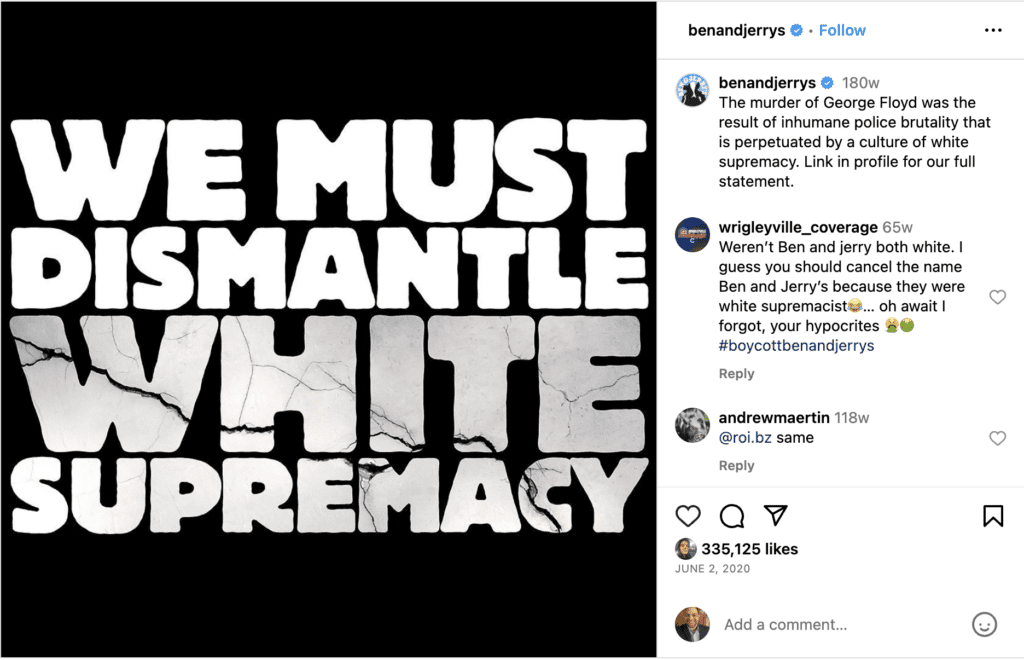
UFC: Not be bullied by advertisers
Equally authentic is UFC CEO Dana White, who has been a longtime friend and supporter of Donald Trump. In a recent interview, which we can’t link because of profanity, he discusses how one of his largest advertisers called him because he had reposted a pro-Trump post on his private social media.
In no uncertain terms, he reminded the advertiser that it was his private account before telling them where to go and what to do when they got there! He went on to tell them that he has no idea what their personal politics are because he doesn’t care, and it’s none of his business.
In maintaining his core values, he has kept UFC politically neutral and allowed its fighters to express their own personalities and views. In 2015, when then undefeated Ronda Rousey comfortably upset some of the fan base by openly supporting Democratic Socialist Bernie Sanders, she did so safely knowing that Dana had her back, even if he intended to off-set her vote. This seems like a key factor in why MMA is the fastest-growing sport. It has almost equal appeal to fans on both sides of the political aisle, skewing only slightly blue.
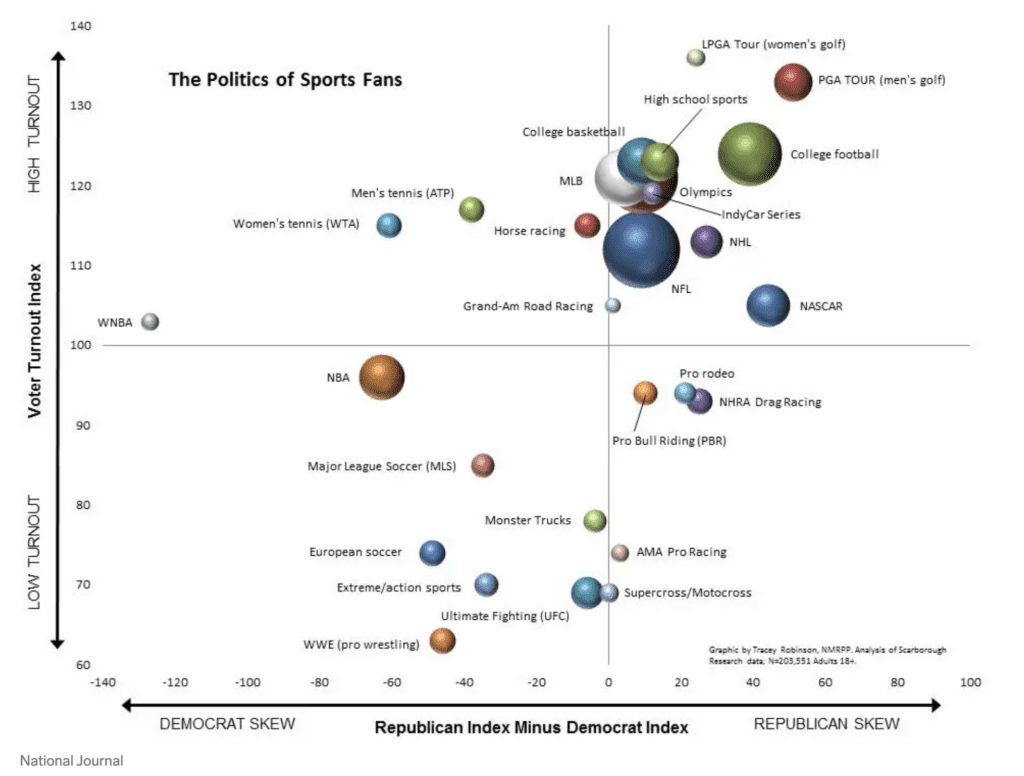
Ben, Jerry and Dana all know who they are as people and are comfortable being authentic and leading authentic brands in this fast-paced world of trends, daily metrics, demanded initiatives and external expectations.
Build Relationships With Your Customers
Real isn’t how you are made…It’s a thing that happens to you. When a child loves you for a long, long time, not just to play with, but really loves you, then you become Real.
Margery Williams Bianco, The Velveteen Rabbit
A brand isn’t dictated to an audience. It’s formed by the relationship between the company and its consumer. Just like a toy becomes real or alive through a child’s love, a brand becomes alive and relevant through the love and brand loyalty of its base.
Patagonia: High quality is timeless—even for parkas!
Patagonia puts its environmental mission ahead of its sales volume. The company actively encourages customers not to buy clothes they don’t need. Crazy, right, but I guess when you sell socks for $22 and boxers for $35, you can afford to focus on social responsibility.
To support the longevity of their quality product, eight years ago, they traveled the country with a “Worn Wear Wagon,” teaching customers how to repair their damaged apparel and gear. Then that appeared to have evolved into “Worn Wear Events,” corporate-sanctioned swap meets spread through social media and word-of-mouth.
Now, as an auto dealership does, they permit trade-ins of used clothes, and they make money from their resale! This marketing strategy aligns with their environment mission, screams the message of their brand being higher quality, and makes them money all while reinforcing their customer experience and building brand authenticity through their involvement on both ends of the product lifecycle. Before you ask, we checked, and they don’t accept trade-ins on boxers!

With a net promoter score of 63, more than three times that of its top three competitors, this marketing strategy is working!
Get Expert Help With Brand Authenticity
Brands need to stand for something consistently and authentically beyond the next dollar to build emotional connections with groups of people. A key component to long-term success is overlooking shifting day-to-day trends and pressures. Brands today need to recognize their flaws, remain consistent with their values even in storms, and recognize they owe their very being to the love and loyalty they receive from their customers.
Do you have a favorite authenticity quote you think we missed? Want to wish us a Happy Thanksgiving? Drop us a note or call us at 502-499-4209.
Our Articles Delivered
Signup to receive our latest articles right in your inbox.

